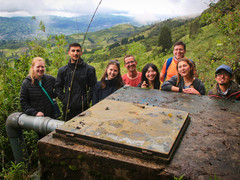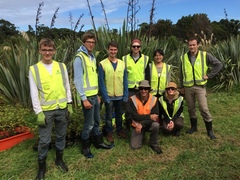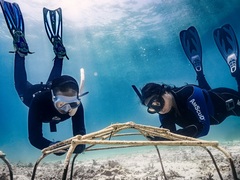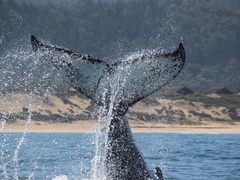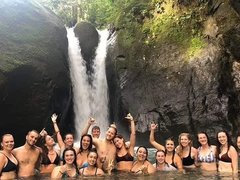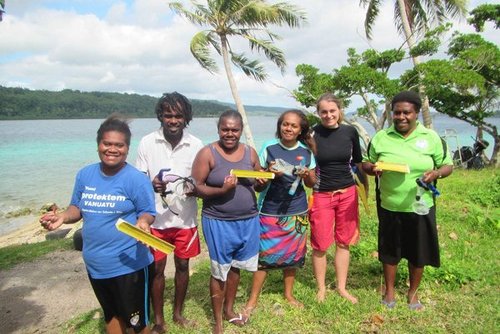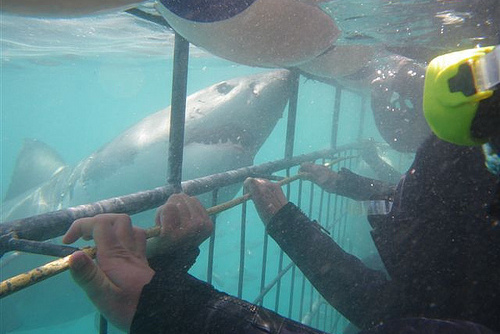These expeditions are designed with specific wildlife conservation aims in mind - from identifying areas needing protection, through to implementing and assessing conservation management programmes.
Large teams of university academics, who are specialists in various aspects of biodiversity or social and economic studies, are concentrated at the target study sites. Research Assistants and dissertation students joining the surveys have the option of customising their own itinerary from a range of training and science options.
The surveys result in a large number of publications in peer-reviewed journals each year, have resulted in 30 vertebrate species new to science being discovered, 4 'extinct' species being re-discovered and $2 million levered from funding agencies to set up best practice management examples at the study sites.
These large survey teams of academics and volunteers that are funded independently of normal academic sources have enabled large temporal and spatial biodiversity and socio-economic data sets to be produced, and provide information to help with organising effective conservation management programmes.
Operation Wallacea
Location: Multiple Destinations
Operation Wallacea is a series of biological and social science expedition projects that operate in remote locations across the world.
Update Listing
Apply to update this profile.
Learn more about advertising opportunities or contact us for details.
Operation Wallacea Reviews

Related Opportunities
Community Water Projects in Rural Ecuador
- El Terreno: Cultual Exchange Centre
- Atandahua, Guaranda, Ecuador
- 4 weeks to 6 months
- 500 to 3000+ $ Dollars (US)
Conservation Volunteering in New Zealand
- Oyster Worldwide
- All over the country
- 1 week to 3 months
- 750 to 1250 £ Pound (UK)
Divemaster Internship in Indonesia
- Gili Shark Conservation
- Gili Islands Indonesia
- 2 weeks to 3 months
- 2000 to 3000+ $ Dollars (US)
Maldives Marine Life Volunteer Program
- Secret Paradise Maldives
- Ari Atoll
- < 1 week to 4 weeks
- 1750 to 2500 $ Dollars (US)
Monkey Conservation Program, Kenya
- Colobus Conservation
- Kenya
- < 1 week to 1 Year+
- 100 to 2000 $ Dollars (US)
Ocean Conservation Volunteer Project, Plettenberg Bay, South Africa
- Good Hope Volunteers
- Plettenberg Bay, South Africa
- 2 weeks to 3 months
- 1250 to 3000+ € Euro
Professional Field Guide Course | South Africa
- Hamba Africa
- South Africa, Limpopo
- 2 months to 2 months
- 3000+ to 3000+ £ Pound (UK)
Volunteer, Service Learning & Internships in Costa Rica
- Osa Institute
- Costa Rica
- 2 weeks to 4 weeks
- 500 to 3000+ $ Dollars (US)
Related Articles
Study Abroad in the United Kingdom
The UK is one of the most popular destinations to study abroad in the world with world-class universities and internatio...
17/02/2015
Conservation Initiatives in Vanuatu & Soloman Islands
OceansWatch is an organiation who run expeditions to developing small island nations to assist them with marine and t...
07/09/2017
Volunteer with Sharks
Looking for a thrilling experience? Search incredible shark conservation volunteer projects in destinations like Aust...
21/05/2012
Conservation & Environmental Volunteer Programs Abroad
There are real problems facing conservation with the destruction of rainforests and natural habitats, pollution and a...
12/11/2009
Top Reasons to Study IT at the University of Phoenix
Imagine what our world would be like today without technology. It is a part of every aspect of modern life, from the ...
17/09/2021
Volunteer in Croatia
Croatia is one of the most most desirable places to volunteer in Europe and it's easy to see why - there are spectacu...
24/03/2015

